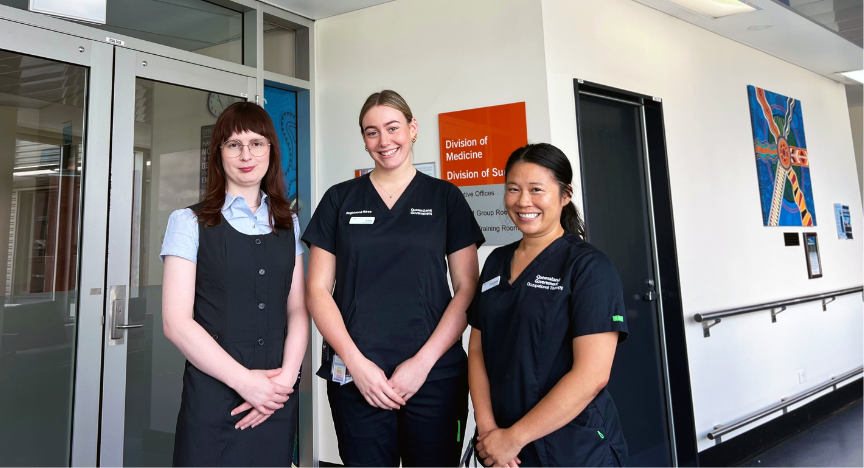
Staff and patients are benefitting from a new project at PA Hospital called Enhanced Patient Close Observations (EPCO) which is being celebrated as an innovative way of delivering care.
EPCO was established in April 2024 as a hospital-wide initiative to improve the current PAH Close Observations Model of Care and has been modelled from the Nursing Specials Efficiency Initiative from the Gold Coast University Hospital.
It reinforces the hospital’s commitment to patient and staff safety, improving patient care, efficient use of resourcing as well as building the capacity and capability of the workforce.
EPCO Project Officer and Advanced Occupational Therapist Charlene Allen said she’s extremely proud of how the relatively small team has already achieved some big wins.
“Our goal is to enhance the care for patients with increased needs such as delirium by focusing on staff, patient, family and carer partnership in the provision of care during their admission,” she said.
“We provide point of care support and education to build staff capacity, capability and confidence when delivering therapeutic and engaging care.
“One of our biggest strengths as a service is that we’re improving patient care in a cost-effective way.”
The flexible and interdisciplinary team is currently comprised of an Occupational Therapist and Clinical Nurse Consultant to help meet the unique needs of each ward environment.
And in a mark of the project’s success, EPCO has been given temporary additional funding to expand the service to cover weekends with additional hours and staffing until the end of the financial year.
“I’m excited about what this expansion means for the project’s future as we focus on patients who are very frail and cognitively impaired,” said Charlene.
The team is also involved in the CogChamp initiative in partnership with the Dementia and Delirium Nursing Service which is committed to improving care for cognitively impaired patients through leading best practice in the workplace.
CogChamps proactively improve their knowledge and skills to become local ward experts and lead practice change through teaching, role-modelling and advocating quality improvement processes.
The ongoing focus to enhance patient care was acknowledged on 12 March for World Delirium Day which raises awareness about delirium and its impact on patients, families, and healthcare systems.